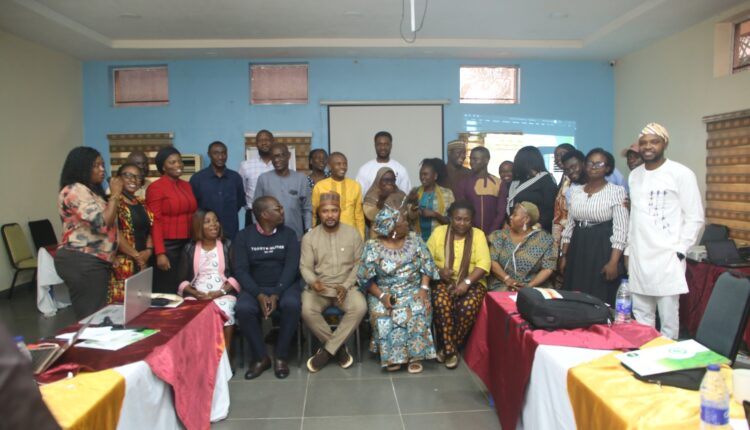
Civil Society-Scaling Up Nutrition in Nigeria (CS-SUNN) and other nutrition stakeholders have applauded federal government on its policy of free Multiple Micronutrients Supplementation (MMS) to pregnant women in Nigeria.
They made this known in separate interviews with newsmen on the fourth day of the ongoing five days stakeholders strategic advocacy meeting on nutrition taking place in Keffi local government area of Nasarawa state on Friday.

The meeting is organized by the Federal Ministry of Health and Social Welfare, in collaboration with CS-SUNN and other key nutrition partners is focused on crafting a comprehensive national advocacy strategy to tackle the country’s nutrition challenges.
The meeting, which runs from August 20 to 24, seeks to strengthen evidence-based nutrition advocacy, integrate key interventions like MMS and unify efforts towards addressing Nigeria’s triple burden of malnutrition—undernutrition, overnutrition, and micronutrient deficiencies.
Our reporter reports that federal government recently approved the transition from Iron Folic Acid Supplementation (IFAS) to MMS, a move expected to drastically improve maternal and child health outcomes across Nigeria, with every woman expected to take the MMS tablet once daily for 180 days during pregnancy.
In an interview, Mrs Lilian Okafor, Communication Officer, CS-SUNN applauded the federal government for approving free MMS for pregnant women and also thanked the government for the latest consignment of MMS that arrived the country recently.
“We really applaud the federal government for including MMS in it’s essential medicine list. This shows how important MMS is and will be in helping Nigeria improve pregnancy outcomes for pregnant and expectant mothers.
“MMS contains 15 essential vitamins and nutrients that will enable our pregnant women thrive positively and effectively throughout the period of pregnancy and even for the unborn child,” she said.
She then encouraged the government to take a step further by incorporating MMS interventions into the ante care guidelines and also key into the Child Nutrition Funding (CNF) which is a counterpart funding commitment by United Nations Children’s Fund (UNICEF).
Hajiya Asamau Mohammed, State Nutrition Officer for Niger state also lauded the federal government on the new national guideline of migration from IFAS to MMS and revealed that Niger state has already keyed into it and women in the state are already benefitting from it.
“The experience has been a good one and we have seen the benefits. Our pregnant women have come up with testimonies of efficiencies of the supplements.
That is why it is important to advocate to critical stakeholders to understand the change and weigh the benefits.
“I want to assure you that Niger state is good to go because I have seen the willingness of the state government to also tread along the use of MMS in Nigeria,” she added.
Mr Micheal Eveshoyan, Representative of Hellen Keller International, a development partner called on the government to ensure MMS is always available in health facilities to ensure that those who need it are properly and adequately attended to with it.
“We should have a country where none of our children is screened to be malnourished, either moderately malnourished or severely acute malnourished.
“When the nutrition of our citizens is properly enhanced, definitely we will have a very healthy and productive nation” he said.
Speaking earlier, Mr Uruakpa John, Director, Nutrition Special Programme, Federal Ministry of Health and Social Welfare confirmed that MMS is free where it is available in public health facilities across the country and urged pregnant women to access it.
“Why we are adopting it is for a better pregnancy for our women. Mothers have been dying due to pregnancy. Children are born as still births while some others are born with defects.
“So with the coming of this MMS, we aim at reducing the mortality rate and also aim at improving child birth and also assuring that the mother and child are alive and healthy after childbirth,” he said.
He assured that government will ensure that MMS is available in the primary, secondary and tertiary health facilities across the country.
“You dont need to pay anything but if you go to a private pharmacy you will pay. But I want to assure you government will make sure it’s available,” he added.
….END.


